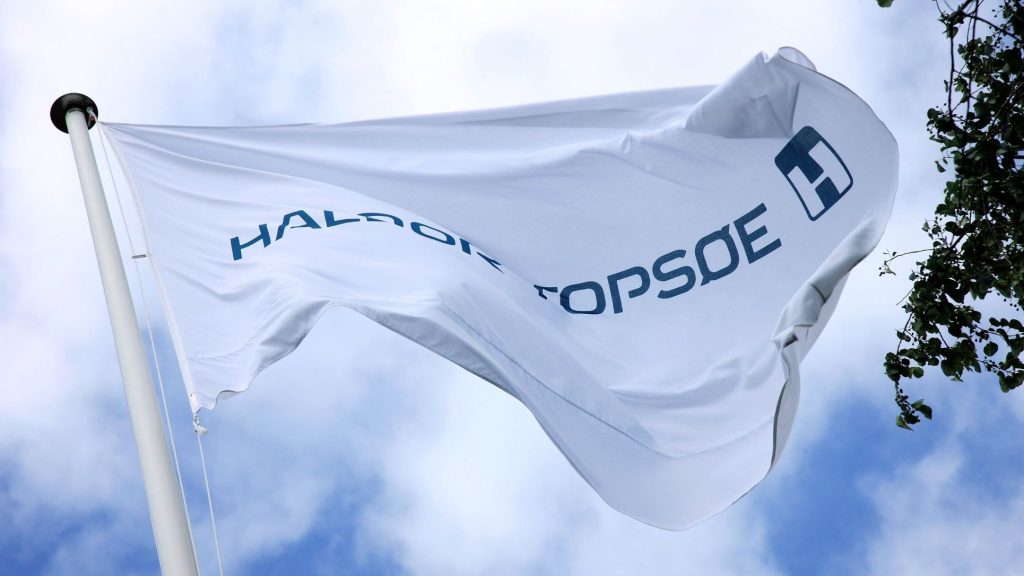Denmark’s Topsoe Plans Europe’s Largest Electrolyser Plant

Danish engineering group Topsoe plans to build Europe’s biggest plant making electrolysers – machines that produce the green hydrogen considered a cornerstone of the shift to cleaner energy.
Hydrogen is categorised as green when made using renewable power, and is seen as critical in helping to decarbonise hard-to-transition industries such as steelmaking and heavy transportation, though the technology is immature and costly.
The Danish plant will start running in 2024 and comes with a 2 billion Danish crowns ($284 million) price tag, Topsoe’s Chief Executive Officer Roeland Baan told Reuters, adding a final investment decision will be taken in August.
The European Commission this month unveiled plans to end its reliance on Russian fossil fuels, including a goal to produce 10 million tonnes of renewable hydrogen by 2030.
Some 100 gigawatts (GW) of electrolysis capacity would be needed to deliver the 10 million tonnes – a far cry from the roughly 0.3 megawatts (MW) installed today, Baan said.
He added the EU’s target also hinged on massive development of solar and wind energy, since around 200 GW of renewable energy would be needed to meet the bloc’s hydrogen target.
“That’s the biggest challenge we are facing,” he said.
Germany, Belgium, the Netherlands and Denmark on Wednesday pledged to build at least 150 GW of offshore wind capacity in the North Sea by 2050 to create a “green power plant” for Europe.
Topsoe’s plant will have an initial annual capacity of 500 MW, which is expected to be quickly doubled, Baan said, adding there was a further option to expand to 5 GW.
Topsoe is competing with Germany’s Sunfire, which also plans to expand its annual production capacity to 500 MW initially, with the aim of scaling up to 1 GW.
($1 = 7.0410 Danish crowns)
(Reporting by Stine Jacobsen; Editing by Mark Potter)




